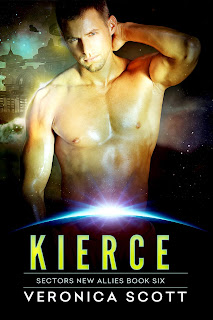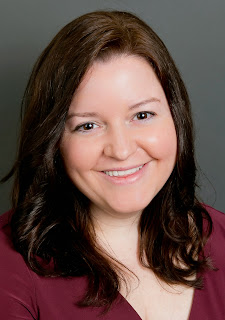Today, we welcome author Veronica Scott, best selling author of action-packed SFR. A big thank-you goes to her for taking the time to answer one question: If you could share one piece of writing advice with new writers, what would it be? Take it away, Veronica!
I was recently invited to give a talk for a local writers’
group and since the allotted time was short and the topic of being an
independently published author is huge, I tried to narrow the presentation down
to a few key points. I didn’t want to depress or overwhelm the group members,
most of whom aren’t yet published, but I thought it might be useful to start
them thinking what next after I type The
End on that first book?
There were lots of questions and no one dozed off, which are
two key positive indicators in my internal ratings system and I thought the
topic might be useful here. I’ve turned the outline of part of my talk into
this post.
.
.
First, as I did at the meeting, we need to pause and
acknowledge that finishing a book is a HUGE accomplishment and deserves
celebration and kudos. So few people actually manage to complete that first
book, although so many talk about writing a book ‘someday’, or may even write a
few pages and find out what hard work it can be and stop. So if you’ve
completed that first book, take a moment to bask in the well-deserved happy
feels.
But then the author needs to ask where on the spectrum of
expectations they fall. Is this the book of their heart, the one and only book
they ever want to create and just having it available on Amazon for friends and
relatives to buy will truly be enough? Holding that paperback version is a thrill all right.
So if the book sits at #3,000,000 in Amazon forever they’ll be ok with it? Or are they secretly hoping to become J. K. Rowling someday, with billions of readers and theme parks and movies and so forth? I think we’d all like to be that person and yes, someone does win the lotto and yes, a few authors do rise to that level…but there’s nothing specific you can do right now to become JKR.
So if the book sits at #3,000,000 in Amazon forever they’ll be ok with it? Or are they secretly hoping to become J. K. Rowling someday, with billions of readers and theme parks and movies and so forth? I think we’d all like to be that person and yes, someone does win the lotto and yes, a few authors do rise to that level…but there’s nothing specific you can do right now to become JKR.
So accept that you fall into the middle of the spectrum with
most of us authors and realize writing is a business and you’re going to have
to treat it as such.
First, you have to have a social media presence. How are
readers going to find you and your book if you aren’t out there to be found?
No, magical thinking doesn’t qualify as a strategy, especially nowadays with
the huge volume of books being published every week. If your book hovers around
#3,000,000 in ranking, readers are not going to stumble over it.
I always encourage
authors to find the social media that works for them and where they feel
comfortable. Even if they aren’t yet published, they have interesting lives,
hobbies, fan favorites, general book talk they can share. And the internet
always loves a good cat picture or two!
The one thing I strongly urge a writer to have is a blog or
a website. There needs to be a central point a reader can go to learn about
you, your books, what’s coming next and when, and a way to contact the author.
Yes, you can have an Author Page on Amazon and also collect followers on
BookBub after publication – I do both – but that real estate doesn’t belong to
you. You don’t even know who those readers are and the company can change its
business practices on a dime. So have one internet spot that’s all yours! Your first internet presence doesn’t have to
be full of bells and whistles and expensive.
Six more quick points of advice?
Develop a thick skin because this is a business.
Never engage with reviewers, especially over a negative
review.
Find a group of likeminded writers, on Facebook or wherever,
for encouragement and tips and cross promo!
Practice self-care, physically and mentally.
Don’t compare your journey to any other author’s because
everyone’s path is different.
My most recent release is Kierce: A Badari Warriors SciFi Romance (Sectors New Allies Series) and
here’s the blurb:
Elianna McNamee, spaceship engineer, is far from her home in
the human Sectors, kidnapped along with all her shipmates to be used for
horrifying experiments conducted on a remote planet by alien scientists.
Her captors decide to toss her in a cell with a ferocious
predator, expecting him to kill her…but Kierce, the Badari warrior in question,
has too much honor to mistreat a human woman. The trouble is, he’s trapped in a
form drastically different from his own as a result of twisted genetic meddling
and hiding dark secrets to save other Badari lives.
Able to become a man again briefly with Elianna‘s help, he
and Elianna bond over their mutual hatred for the enemy but when rescuers
finally arrive, the pair are separated by well-meaning Badari authorities.
Kierce struggles to overcome flashbacks from the torture and
drugs the alien scientists inflicted on him. He and Elianna despair over
whether he’ll ever be able to regain his rightful place as a man and a soldier
in the pack, much less be ready to claim a mate.
Elianna accepts a risky but essential assignment far away
from where Kierce is being held, working with another man who’s more than
professionally interested in her. Her heart belongs to Kierce and she can’t
forget their two nights of shared passion but will that be enough to lead them
to a happy reunion?
USA Today Best Selling Author
Veronica Scott grew
up in a house with a library as its heart. Dad loved science fiction, Mom loved
ancient history and Veronica thought there needed to be more romance in
everything. When she ran out of books to read, she started writing her own
stories.
Seven time winner of the SFR Galaxy Award, as well as a
National Excellence in Romance Fiction Award, Veronica is also the proud
recipient of a NASA Exceptional Service Medal relating to her former day job,
not her romances!
She read the part of
Star Trek Crew Member in the official audiobook production of Harlan Ellison’s
“The City On the Edge of Forever.”
Twitter: https://twitter.com/vscotttheauthor















